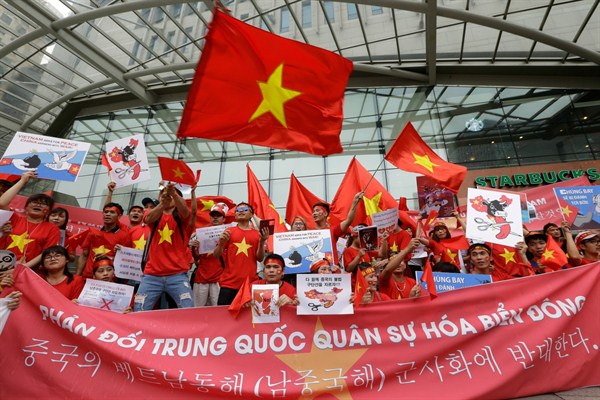Late last month, Vietnam suspended ongoing work on a major oil drilling project in disputed waters between it and China in the South China Sea, reportedly under Chinese pressure. The incident revealed the ongoing challenge Vietnam faces in protecting its interests in the vital waterway as Beijing continues to aggressively assert its maritime claims.
Vietnam is no stranger to this kind of Chinese behavior in the South China Sea. For Hanoi, the disputes are just part of a wider, centuries-old problem of managing ties with its giant northern neighbor, which occupied it for nearly a millennia and with which it has fought multiple wars, including most recently in 1979. Due to its proximity to China, the vast asymmetry of its capabilities relative to Beijing, and the long historical evolution of their relationship, Vietnam has long pursued a mix of engagement and balancing, recognizing the threats and opportunities from Beijing.
Yet China’s current round of assertiveness, which kicked off in 2009, has heightened concerns in Hanoi, as it has in other capitals in Southeast Asia. Though the most dramatic manifestation was the deployment of a Chinese deep-water oil rig in waters claimed by Vietnam back in 2014, Beijing’s actions really run across the board. It has harassed fishermen, built up and militarized reefs and rocky outcroppings, and engaged in forms of diplomatic and economic coercion that sometimes remain undisclosed to the public. China’s moves are suggestive of a power that wants the capability to control the South China Sea in order to realize its expansive and unlawful claims, even if it comes at the expense of other states—and no matter what the other costs might be.

